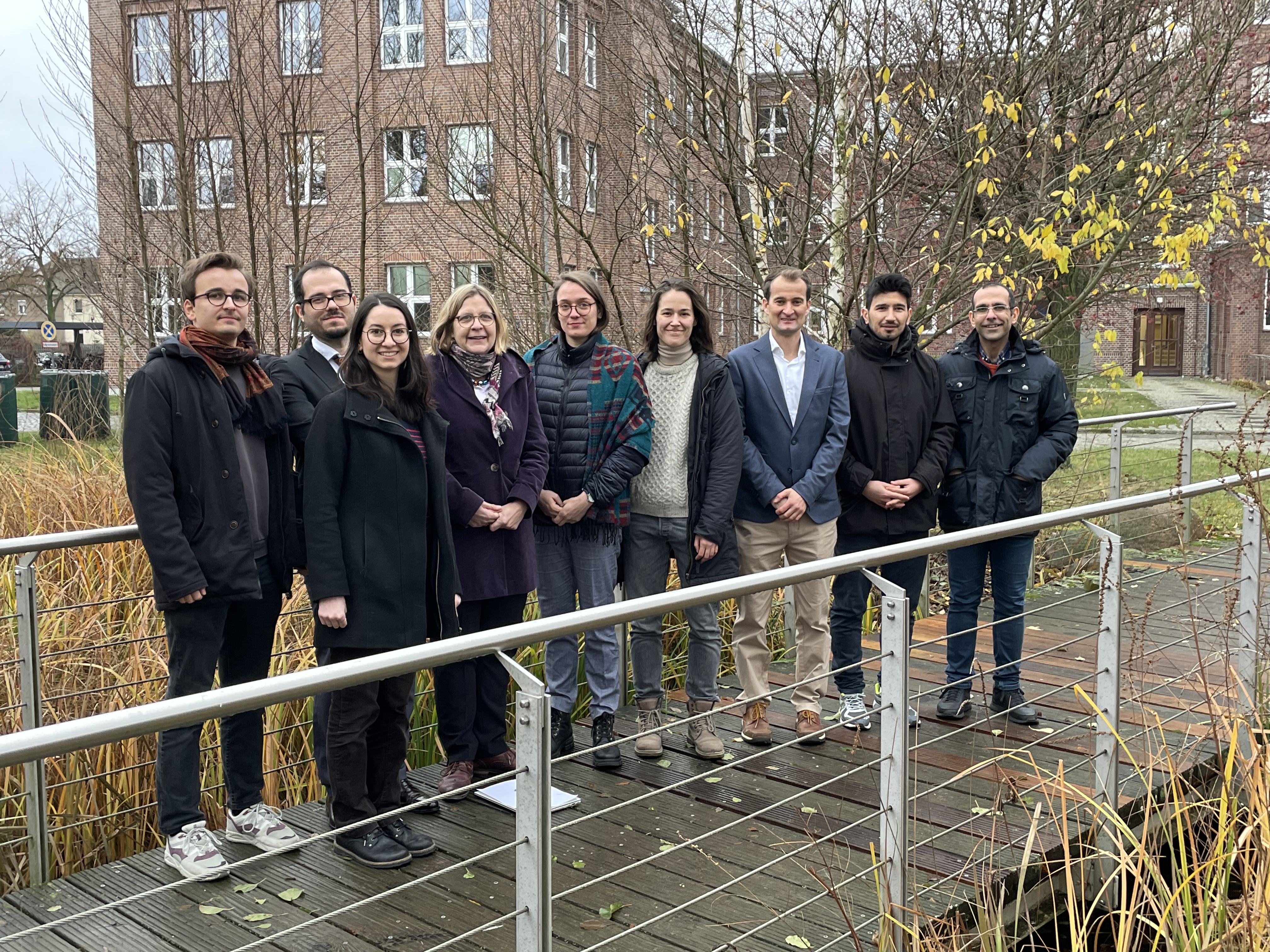Research Group Renewable Energies

Team:
Danial Esmaeili Aliabadi (Group Team Lead)
Matthias Jordan
David Manske
Nora Mittelstädt
Mohammad Sadr
Sandra Gutjahr
Manisha Panda
Clemens Häfner
Isabella Kreller
Vision:
Accelerating the expansion of renewable energies in Germany and beyond.
Mission:
To monitor the status quo and model future scenarios of renewable energies as well as connected sectors (i.e. bioeconomy, carbon dioxide removal) in multifunctional landscapes.
Grand Challenge:
The competition over shared resources (e.g., land and water) is increasing as the focus is shifting away from sub-surface fossil resources to sustainable ones on the ground (solar, hydro, and bioenergy) and above ground (wind).
Shared resources should be managed sustainably, considering the many expectations of a sustainable earth and environment. To shape energy landscapes sustainably, we need to monitor the transformation of intertwined systems, which subsequently enables us to model possible future scenarios accurately and investigate the impact of various changing socio-techno-economic and political factors affected by climate change.
Developed Tools:
- EE-Monitor webapp (Monitoring)
- BENOPTex (Modeling future scenarios)
- ReSTEP models (Modeling status quo)
Ongoing Projects:
BioNET - Multi-level Assessment of Bio-based Negative Emission Technologies
Man0EUvRE – Energy System Modelling for Transition to a net-Zero 2050 for EU via REPowerEU
MonReLand – Monitoring Renewable Energy Landscapes (Independent Phd Project)
Completed Projects:
BEniVer - Accompanying research on the energy transition in transport
BEPASO - Bioeconomy 2050: Potentials, conflicting goals, solution strategies
BKSQuote - Study on the design of biofuel legislation
Helmholtz impulse and networking fund project for a bioenergy department [only in german]
HI-CAM - Helmholtz Climate Initiative - Adaptation Project 9
InPositiv – Indirect positive contributions of renewable energies to nature conservation
KonditorGas - Industrial process heat generation through catalytic conditioning of synthesis gases
SoBio - Scenarios of optimal energetic biomass usage until 2030 and 2050
TATBio - Techno-economic analysis and transformation paths of the energetic biomass potential
